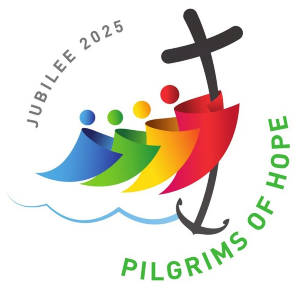Mathematics
Overviews
Nursery Reception Year 1 Year 2
“Mathematics is a creative and highly inter-connected discipline that has been developed over centuries, providing the solution to some of history’s most intriguing problems. It is essential to everyday life, critical to science, technology and engineering, and necessary for financial literacy and most forms of employment. A high-quality mathematics education therefore provides a foundation for understanding the world, the ability to reason mathematically, an appreciation of the beauty and power of mathematics, and a sense of enjoyment and curiosity about the subject."
(Taken from the National Curriculum.)
Coverage
Mathematics is a core subject in the National Curriculum. At Our Lady of Grace Infants all teachers are required to follow the guidance given by the Government for each phase of learning. The key areas of learning are as follows:
- number – number and place value
- number – addition and subtraction
- number – multiplication and division
- number – fractions
- measurement
- geometry – properties of shapes
- geometry – position and direction
- statistics
- application of all in different contexts
- problem solving
EYFS
Mathematics within the EYFS is developed through purposeful play-based experiences and will be implemented through the indoors and outdoors provision set out in the White Rose SoW and the numbers and patterns document we use to supplement progression from Nursery to Reception. These skills and learning can also be developed through stories, songs, games, imaginative play, child-initiated learning and structured teaching.
Early Years Foundation Stage teachers follow the latest EYFS guidance. We relate the mathematical aspects of the children's work to the development matters statements and the early learning goals (ELG), as set out in the EYFS profile document. Mathematics development involves providing children with opportunities to practise and improve their skills in counting numbers, calculating simple addition and subtraction problems and to describe numerical patterns. The profile for mathematics’ areas of learning are number and numerical patterns. We continually observe and assess children against these areas using their age-related objectives and plan the next steps in their mathematical development through a topic-based curriculum.
KS1
In KS1 we aim to deliver a maths mastery curriculum. Teachers base their planning on the material provided by the White Rose maths hub paying close attention to the development of small steps that will allow the children not only to grasp a concept but for it to become embedded. The WR materials follow the national curriculum and lend themselves to a secure mastery approach where children are developing their fluency, reasoning and problem solving skills by using concrete, pictorial and abstract methods. Some of the key features are:
- use of mathematical language
- use of the part-whole and bar model
- practice and consolidation
- contextual learning
- assessment
Fluency involves
- Quick recall of facts and procedures
- The flexibility and fluidity to move between different contexts and representations of mathematics
- The ability to recognise relationships and make connections in mathematics
Representation & structure: Mathematical structures are the key patterns and generalisations that underpin sets of numbers. They are the laws and relationships that we want children to spot. Using different representations can help children to ‘see’ these laws and relationships.
Variation
- Procedural variation – this is a deliberate change in the type of examples used and questions set, to draw attention to certain features.
- Conceptual variation – when a concept is presented in different ways, to show what a concept is, in all of its different forms.
Mathematical thinking
- Looking for pattern and relationships
- Logical reasoning
- Making connections
As a core subject, mathematics will receive a prominent time allocation throughout the week. Lessons will be delivered in ways that meet the needs of the specific cohort with the aim of maximising the learning of all children. EYFS and KS1 may have different forms of provision.
Through careful planning and preparation, children will experience the following:
- The development of mental strategies
- Written methods
- Practical activities and mathematical games
- Investigational work
- Problem solving
- Mathematical discussion
- Consolidation of basic skills and number facts
- Working with computers as a mathematical tool
Teaching and learning
Children are provided with a variety of opportunities to develop and extend their mathematical skills in and across each phase of education. In our school, mathematics lessons cater for different styles of learning. They seek to develop a deep understanding of the subject by not rushing the concepts. The format of a lesson may also vary according to the topic being covered. We aim to provide children with ample opportunities to understand new concepts and to allow them to practise in different ways within one lesson. Throughout the week the children will have the opportunities to experience group, paired or individual work as well as whole class teaching.
We also recognise the importance of establishing a secure foundation in mental calculation and recall of number facts. We use the appropriate mathematical terminology in our teaching and children are also expected to use it in their verbal and written explanations. Mathematics is used in other curriculum areas wherever possible or appropriate. This helps to expand and consolidate mathematical concepts; furthermore, using maths in a purposeful way in real contexts helps the children to realise that mathematics is important in the real world. We endeavour to set work that is challenging, motivating and creates contexts for the children to discuss the mathematical concept they have been learning.
Children recording their work
Recording may be in individual mathematics books, topic work or displays.
Recording evidence may take the form of writing, drawing, models or other made objects, symbols or discussion. Children record their work:
- To help clarify their own thinking
- To communicate to others
- To help them to realise the relevance of mathematical activities to everyday life
- To provide evidence of their work in mathematics
At Our Lady of Grace Infants all children are expected to achieve the key learning objectives as set out in the National Curriculum for each year group. A rigorous follow-up of small steps allows the majority of children to meet their targets that are presented to the them as a main topic. Learning Objectives are broken down into lesson WALTs (What Am I Learning Today). The importance of this is revisited in a lesson through regular discussions, verbal feedback and in some cases written comments. In EYFS this is done through the use of the children as Learning detectives as well as parents' evenings. In KS1, some specific targets are shared with parents at parents’ evening or through regular communication with them.
Assessment and record keeping
Formative assessment, carried out by the class teacher, is an integral part of their role and is used on a daily/weekly basis to inform future planning. It involves identifying children’s progress against teaching objectives, determining what children have already achieved and what questions could be used that would deepen their understanding and/or explore reasoning problems. Teachers use daily marking to
Teaching maths for mastery allows all children to have access to the full mathematics curriculum. This inclusive approach, and its emphasis on promoting multiple methods of solving a problem, builds self-confidence and resilience in children. Although the whole class goes through the same content at the same pace, there is still plenty of opportunity for differentiation. By following a mastery approach, differentiation occurs in the support and intervention provided to different children, not in the topics taught. There is no differentiation in content taught, but this is present in the questioning and scaffolding individual children receive in class. In some cases, children who grasp concepts quickly will be challenged through more demanding problems which deepen their knowledge of the same content. Childrens’ difficulties and misconceptions are identified through immediate formative assessment and addressed with interventions or by addressing them as a class. The different activities in one lesson will provide each pupil with several opportunities to access the learning.
A single teaching strategy will not be sufficient in itself, but teachers will use a variety of approaches as appropriate. Children may be given:
- Different tasks which might have been simplified or extended
- Different resources to convey the meaning
- Differing levels of support by the teacher, support staff and other children
- Open ended tasks which will allow for a range of different outcomes
- Opportunities to work in a variety of groupings
Resources
All classrooms should have a mathematics working wall; teachers should aim to organise an area within the classroom dedicated to mathematics. This area should be easily accessible to all children and allow them to consolidate and further their mathematical thinking.
All children are encouraged to use practical equipment to develop deep conceptual understanding at every possible opportunity. Learning is also supported through visual resources such as number lines, number cards, counters and Dienes amongst others.











